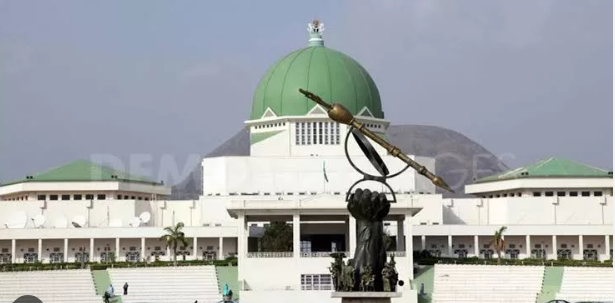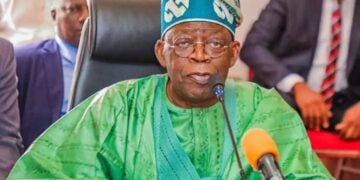As groups and prominent Nigerians submit memos to the Constitution Amendment Committee at the National Assembly (NASS), the Coalition of Indigenous Ethnic Nationalities (CIEN) has called for the creation of eight regions for the country.
Nigeria has six geopolitical zones, but the group said the regions are inadequate and misrepresent some ethnic groups.
The regions being proposed by the group are North East Region, Eastern Middle Belt Region, South East Region, South-South Region, Midwest Region, Western Region, Western Middle Belt Region and North East Region.
Prof. Benjamin Okaba (chairman), Mr. Timothy B. Gandu (co-chairman), and Mr. Nubari Saatah (secretary) signed the memo on behalf of CIEN.
The group said the 25 years after Nigeria’s political trajectory changed from the path of guns, khakis and jackboots in a military dictatorship to political parties and voting public in a civilian democracy is good but that the hope that this change first rekindled and inspired in Nigerians on May 29, 1999, has slowly but steadily degenerated into palpable despair as a result of Nigeria’s visible socioeconomic and sociopolitical decay.
“This slow degeneration of the Nigerian federation is manifested in more ways than one, but encapsulated in the following: the budding secessionist movements that have sprung up in different sections of the country over the years and now threaten its unity; the rise in religious and ethnic intolerance; insurgency and terrorism which have ravaged and continue to ravage different parts of the country; a gradual socioeconomic decline with a ripple effect of impoverishing a larger percentage of the Nigerian population, with a grossly skewed graph of the distribution of the commonwealth; and last but not least, a decline in Nigeria’s socio-political status within the comity of nations on the African continent and the wider international stage,” the group said, giving reasons why the country is still crawling.
“Today, more than at any point in Nigeria’s history, calls for the urgent restructuring of the country have been at their loudest and continue to reverberate,” the memo said while giving reasons for the eight regions.
“While we believe that Nigeria has grappled with poor leadership for most of its history and that this has contributed immensely to our current state, the Coalition of Indigenous Ethnic Nationalities has taken cognisance of the fact that our faulty socio-political and socio-economic structures are traceable to the 1999 Nigeria Constitution,” the group said, adding that the call for the restructuring of the Nigerian Federation and the creation of the eight regions is germane and an idea whose time has come.
“Mindful of the above, CIEN, in living up to its founding mandate of uniting Nigeria’s Indigenous ethnic nationalities as a means towards fostering mutual understanding and cooperation, the protection of our various and collective interests, self-determination, and the advancement of the Nigerian state in general, have since its founding, been engaging with the Indigenous peoples on the way forward for our people and we have been largely successful in this regard.
“It is on this note that CIEN would like to inform the Nigerian public and its political leadership, that after due deliberations and consultation on the restructuring of the Nigerian Federation, we have put together recommendations and templates which we strongly believe, if and when implemented, will serve to steer Nigeria away from a more tumultuous immediate future, and towards a more prosperous future where the hopes and aspirations of the indigenous ethnic nationalities will be actualised.
“In furtherance of this, and conscious of the times, CIEN has forwarded a letter and accompanying recommendations to the President and Commander in Chief of the Armed Forces, Bola Ahmed Tinubu GCFR, as we move towards deepening the conversation on the restructuring of the Nigerian Federation. CIEN has also forwarded these recommendations to the leadership of the Nigerian Senate and the House of Representatives, respectively.
“The Nigerian public has not been left out, as the recommendations have been forwarded to members of the press for onward communication and reportage to the people,” the group added.
We’ve got the edge. Get real-time reports, breaking scoops, and exclusive angles delivered straight to your phone. Don’t settle for stale news. Join LEADERSHIP NEWS on WhatsApp for 24/7 updates →
Join Our WhatsApp Channel










